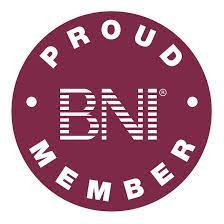Reading comprehension is a vital skill that enables us to understand and interpret written information effectively. Whether you’re a student, a professional, or an avid reader, improving your reading comprehension abilities can significantly enhance your overall understanding and learning experience. In this article, we will explore practical strategies and techniques to boost your reading comprehension skills, empowering you to become a more proficient reader.
Active Reading:
Engage actively with the text by asking yourself questions as you read. This technique helps to keep your mind focused and encourages critical thinking. Formulate inquiries about the main ideas, supporting details, and the author’s purpose. By actively seeking answers, you develop a deeper understanding of the text.
Skim and Scan:
Utilize skimming and scanning techniques to quickly gather information and identify key points. Skimming involves quickly glancing over the text to get an overview, while scanning involves searching for specific words, phrases, or details. Skimming and scanning can save time and help you locate relevant information efficiently.
Build Vocabulary:
Enhancing your vocabulary improves reading comprehension. Regularly expose yourself to new words and their meanings. Read a variety of materials, including books, articles, and newspapers, and keep a dictionary handy to look up unfamiliar words. Understanding the vocabulary within a text enables you to grasp its nuances and subtleties.
Take Notes:
Taking notes while reading helps to organize and consolidate information. Use a highlighter or underline key points, and jot down summaries or key phrases. By actively summarizing the main ideas and supporting details in your own words, you reinforce comprehension and retention.
Chunking Information:
Break down the text into smaller, manageable chunks. Instead of reading a long passage all at once, divide it into paragraphs or sections. This approach improves focus and understanding by allowing you to process information in smaller increments.
Predict and Infer:
Engage in predicting and inferring while reading to develop critical thinking skills. Based on the information provided, make educated guesses about what may happen next or what the author’s intentions are. Inferences help you read between the lines and uncover implied meanings.
Read Diverse Materials:
Broaden your reading material to encompass various genres, subjects, and writing styles. Reading diverse materials exposes you to different perspectives, vocabulary, and sentence structures, enhancing your overall comprehension abilities. Explore fiction, non-fiction, scientific articles, historical texts, and more.
Improve Concentration:
Find a quiet, distraction-free environment to read. Minimize external interruptions and put away electronic devices. Cultivate the habit of focusing solely on the text in front of you, allowing your mind to immerse itself in the material and comprehend it more effectively.
Practice Summarizing:
After reading a passage, practice summarizing its main points concisely. Aim to capture the essence of the text in a few sentences or bullet points. Summarizing strengthens your comprehension skills and aids in retaining important information.
Monitor and Adjust Reading Speed:
Pay attention to your reading speed and adjust it based on the complexity of the material. Some texts require slower, more deliberate reading, while others can be read more quickly. Being mindful of your reading pace ensures better comprehension and prevents information overload.
Improving reading comprehension is a continuous process that requires patience, practice, and an open mind. By implementing these strategies into your reading routine, you will gradually enhance your ability to understand, analyze, and interpret written material effectively. Remember to stay engaged, actively interact with the text, and keep challenging yourself with diverse reading materials. With time and consistent effort, you will become a proficient reader, unlocking a world of knowledge and enjoyment.










